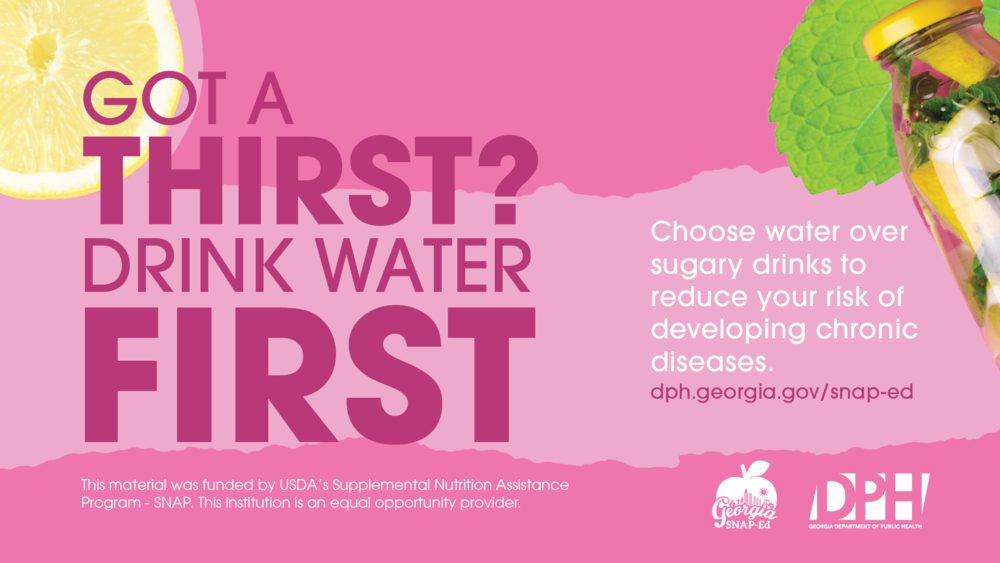
SNAP-Ed

Georgia currently ranks 26th in the nation for adult obesity, with a rate of 35%, compared to the national rate of 40.3%. Families in Low-income households are at greater risk for developing obesity and other chronic diseases (long-lasting sicknesses). They are also more likely to experience food shortages since the money to buy food is limited or unavailable. Nationally, more than 100 millionare living with obesity, placing them at increased risk for serious health conditions such as type 2 diabetes, heart disease, and stroke. Southern states, including Georgia, continue to be disproportionately affected by this national public health crisis.
The Supplemental Nutrition Assistance Program Education (SNAP-Ed) is the educational arm of the United States Department of Agriculture Food and Nutrition Service (USDA FNS). SNAP-Ed, formerly known as food stamps, aims to increase the knowledge and self-help of people receiving SNAP. SNAP-Ed provides individuals and families with tools, resources, and practical support to make healthy choices on a limited budget. By increasing knowledge and encouraging healthier habits, SNAP-Ed helps make the healthy choice the easier choice for Georgia families on a limited budget.
-
Eating Smart · Being Active
The 8-week Eating Smart · Being Active (ESBA) course uses an interactive nutrition education and obesity prevention curriculum. The 90-minute sessions focus on three important areas – nutrition education, physical activity, and preparation of a low-cost, healthy recipe. Participants who complete the series also receive a certificate and cookbook.
Featured weekly topics include:
- Welcome to Eating Smart · Being Active/Get Moving!
- Plan, Shop, Save
- Fruits and Veggies: Half Your Plate
- Make Half Your Grains Whole
- Go Lean with Protein
- Build Strong Bones
- Make a Change
- Celebrate! Eat Smart and Be Active.
-
Community Gardening
DPH partners with local community organizations to develop gardens in communities. The gardens can reduce food shortages by increasing access to affordable fresh produce. More importantly, they give community members ownership of a space that empowers, educates, and engages them to make lasting, healthier choices supporting direct nutrition education's goals.
An established workgroup at each garden provides mentors that help organize regular community garden events.
-
Voices for Food
Voices for Food (VFF) wants to help people access food in rural communities with high poverty and food shortage. Funded public health districts are responsible for building or supporting local food policy councils. They also help connect local food pantries, food banks, and faith-based food distributors to increase the availability of healthy foods and address food access challenges.
This intervention teaches communities about nutrition, meal preparation, food safety, and resource management so that people have enough healthy and sustainable food options available to them.
Check your local health department to see what programs are available in your area.
The material was funded by USDA's Supplemental Nutrition Assistance Program -- SNAP. This institution is an equal opportunity provider.
Page last updated 10/6/2025